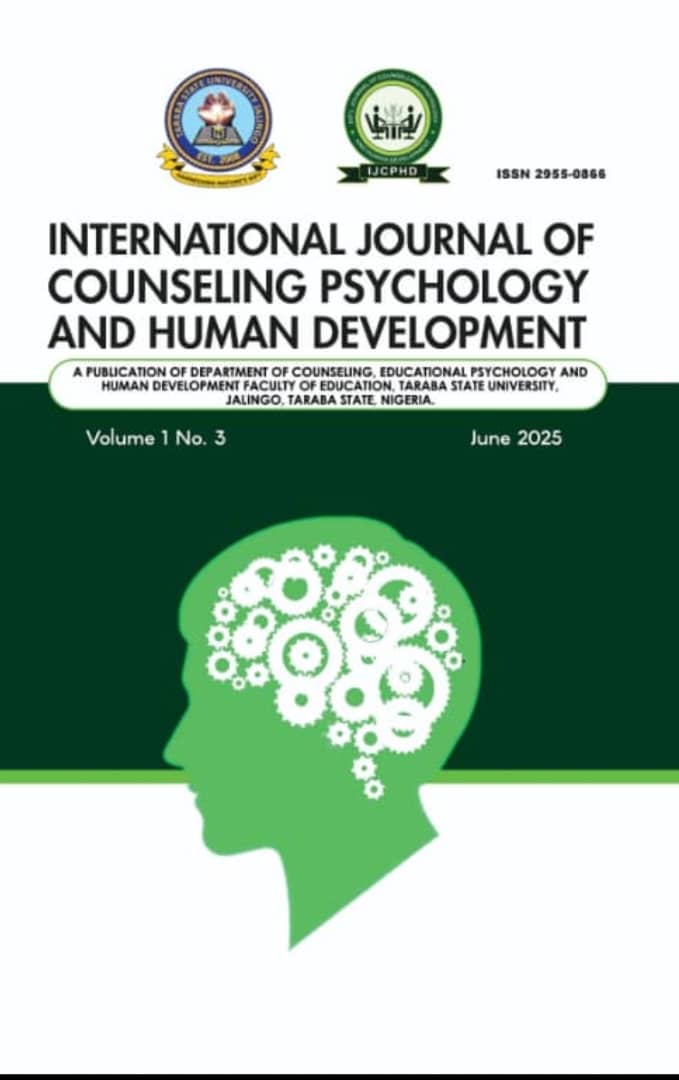IMPACT OF ENVIRONMENT ON GIRL-CHILD EDUCATION IN NUMAN EDUCATION ZONE ADAMAWA STATE NIGERIA.
Keywords:
Impact Environment, Girl-Child Education, Numan Education ZoneAbstract
This paper investigated the Impact of Environment on Girl-Child Education in Numan Education Zone Adamawa State Nigeria two research objectives guided the study and two research hypotheses were formulated and tested at 0.05 level of significance. The study adopted descriptive survey design. The population of the study was5,323 comprising of 4,450 SSS II female students and 873 female teachers from public senior secondary schools in Numan education zone, Adamawa State. The sample size for the study is three hundred and sixty-eight (368) respondents (Teachers and students). Using simple random sampling technique. Self-developed structured questionnaire, titled ‘Environmental Factors Affecting Girl-child Education questionnaire (EFAGCEQ) was used for the study. The instrument was duly validated by three experts in the Faculty of Education, Taraba State University, Jalingo. The reliability of the instrument was obtained using Cronbach-Alpha and yielded a reliability coefficient of 0.75. Chi-square goodness of fit was used to test the hypotheses. The findings revealed that socio-economic factors influences girl child education in Numan education zone Impact of socio-cultural factors on girl child education in Numan education zone Adamawa state is high, Based on the findings of the study, it is concluded that Education is an essential tool to national development Improving the educational status of the citizenry through the girl child education presents enormous potentials for wealth creation and reducing poverty. The study recommends that the law makers in conjunction with traditional authorities should enact by-laws to sanction parents who deny school going age females the opportunity to enroll or further their education, Existing by- laws should be strengthened to sanction culprits, The ministry of Gender, Children and Social Protection in collaboration with the law makers should conduct mobilization/sensitization on the importance of female Education. Cultural practices and entrenched beliefs that continue to be barriers to education should be addressed through sensitization programmes, education and community involvement in larger scale to address the situation.


